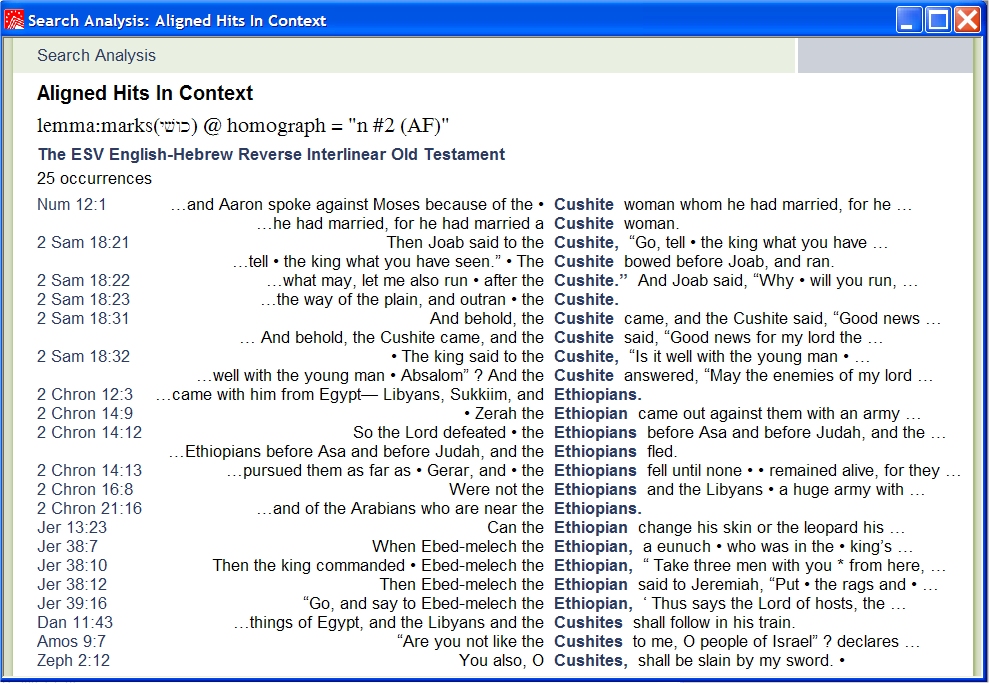johnk
Member
- Messages
- 3
I am hoping someone can help me use the Strong's indexer a little more effectively. When I come to a word in the KJV, I am used to looking that word up in my printed copy of Strongs. When I find the English word, I look for the verse I am reading (they are in biblical order which makes that easy) and then I note the Strong's Hebrew or Greek #, switch to that section, look up the #, and then study the other verses that use that same word.
In SS, I can right-click on a word and choose the Strong's indexer and it does look up the word, but not specific to the verse I am on, hence I have to scroll through the entire list, and even if I guess right on the correct Hebrew entry, the verse references are not in Biblical order making it next to impossible to find the word I am looking for. The only way I determine to use it, is to look in my printed copy, find the correct Hebrew or Greek Strong #, and then type the S# into the search tool in the indexer. Am I missing something? Thanks for any help you can provide. John
In SS, I can right-click on a word and choose the Strong's indexer and it does look up the word, but not specific to the verse I am on, hence I have to scroll through the entire list, and even if I guess right on the correct Hebrew entry, the verse references are not in Biblical order making it next to impossible to find the word I am looking for. The only way I determine to use it, is to look in my printed copy, find the correct Hebrew or Greek Strong #, and then type the S# into the search tool in the indexer. Am I missing something? Thanks for any help you can provide. John

